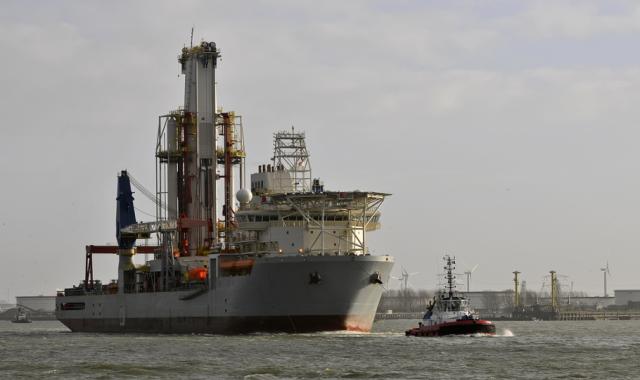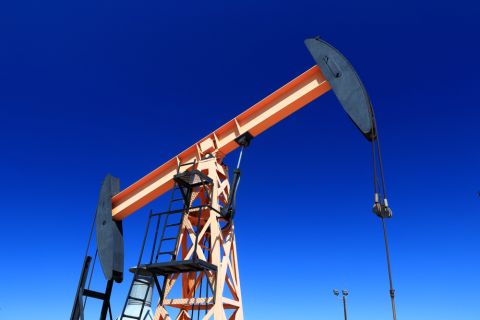
Rough seas could be ahead for offshore drilling contractor Ocean Rig UDW Inc. (NASDAQ: ORIG), which warned that several of its rigs could be without work after wrapping up existing jobs.
In an Oct. 7 fleet status update the international ultra-deepwater and harsh-environment specialist said two rigs started contracts for work offshore Angola and three others are in the process of completing wells—one each offshore the Falklands, Norway and Brazil.
Ocean Rig detailed the status of five of its rigs. The company owns and operates 13 offshore ultra-deepwater drilling units with two ultra-deepwater semisubmersible drilling rigs and 11 ultra-deepwater drillships. Three of its ultra-deepwater drillships are set to be delivered one at a time in 2017, 2018 and 2019.
Work has not been lined up for three of the five rigs once their current contracts end in 2016. With no employment prospects, Ocean Rig said it will explore cold stacking or scrapping the units if work is not found.
The report comes as the oil and gas industry continues to endure lower commodity prices, the result of a supply-demand imbalance that have caused companies to cut back spending and reduce drilling activity.
“The market continues to remain challenging due to the massive spending cuts initiated by the oil companies,” George Economou, chairman and CEO for Ocean Rig, said in a press release. “In this environment, cash preservation and liquidity remain our number one priority and we will adjust our available capacity to the new market conditions.”
Renegotiations
In response to market conditions some drilling companies have renegotiated contracts, adjusting day rates in hopes of keeping and perhaps gaining future contracts with oil and gas companies drilling offshore.
In January, Ocean Rig and ENI Angola agreed to extend the contract for the Ocean Rig Poseidon drillship for a year until second-quarter 2017. As part of that deal, Ocean Rig agreed to adjust the existing day rate in exchange for ENI agreeing to enter two new drillship contracts in West Africa. The deal pushed Ocean Rig’s total contract backlog up by about $187 million to about $5.4 billion.
By number of units, Ocean Rig is the sixth largest contractor with 80% of its drilling fleet comprised of new 6th or 7th generation drillships that average about $535,000/day, Leslie Cook, senior research consultant and project manager for Quest Offshore, told Hart Energy.
But those rates were negotiated two to three years ago. Day rates for such rigs have now dropped below $350,000/day.
The rest of Ocean Rig’s high specification fleet could be subject to rate renegotiations or early termination given high day rates, she added.
“The market is heavily over-supplied right now so all rig types rolling off contract over the next 12 months are subject to idle time,” Cook said. “There are a few marginal opportunities for 1-2 well jobs in 2016 but some of those will be filled with rigs the operators already have under contract.”
Uncertainty
If Ocean Rig is unable to secure long-term employment for rigs that are approaching their five-year performance survey and equipment inspection, Economou said the rigs will be cold stacked. “In the case of the semisubmersible rigs [Ocean Rig will] seriously consider all our options including disposal or scrapping,” he added.
The rigs with uncertain futures include the:
- Ocean Rig Olympia, a 6th-generation deepwater drillship that was completed in 2011. Ocean Rig said the rig is expected to move to the Ivory Coast to drill a well in fourth-quarter 2015 and return to Angola to finish its remaining contract with ENI, which ends in June 2016. With no future prospects, the rig could be cold stacked.
- Eirik Raude, a 5th-generation deepwater semisubmersible rig built in 2002. The company said the rig is completing the third of a six-well program in the Falkland Islands. The contract ends in January. The rig has no future employment and it may be cold stacked or scrapped.
- Leiv Eiriksson, also a 5th-generation deepwater rig. The semisubmersible is completing a well in Norway with its contract expiring in March 2016. It has few prospects for employment afterward.
The fate of the fairly new Ocean Rig Mylos 7th-generation drillship, which is completing a well offshore Brazil, is also unknown. Ocean Rig said it received notice of material breach under the contact, entitling its client to terminate the contract if the breach is not remedied within 75 days.
“We believe that such notice is totally without merit and we intend to vigorously defend our rights under the contract,” the company said.
The drillship is contracted by Repsol.
Cook said she would be surprised to see Eirik Raude and Leiv Eiriksson scrapped because both are of harsh-environment semisubmersibles.
“Historically both of these rigs have been very active but face upcoming idle time,” she said before pointing out that Ocean Rig has three more rigs under construction. “We have seen two drilling contractors cancel delivery of new rigs from the yards, and I would not be surprised to see Ocean Rig try the same.”
Ocean Rig reported one bright spot. The Ocean Rig Skyros, a 7th-generation drillship completed in 2013, appears to be secure, having just started the six-year contract Oct. 1 in Angola.
So far, 44 floating rigs worldwide have been permanently retired, nearly 30 floating rigs have been cold stacked and about 60 more have been idled in the sector, Cook said.
“More attrition is expected over the coming months as rigs roll off contract and either go directly to cold stack or are idled,” she added. “More permanent retirements among older units are also expected. Rigs most susceptible to permanent retirement would be generation 3-5 units that will be unable to compete for reactivation opportunities over the next 4-5 years.”
Velda Addison can be reached at vaddison@hartenergy.com.
Recommended Reading
CEO: Continental Adds Midland Basin Acreage, Explores Woodford, Barnett
2024-04-11 - Continental Resources is adding leases in Midland and Ector counties, Texas, as the private E&P hunts for drilling locations to explore. Continental is also testing deeper Barnett and Woodford intervals across its Permian footprint, CEO Doug Lawler said in an exclusive interview.
To Dawson: EOG, SM Energy, More Aim to Push Midland Heat Map North
2024-02-22 - SM Energy joined Birch Operations, EOG Resources and Callon Petroleum in applying the newest D&C intel to areas north of Midland and Martin counties.
Chevron Hunts Upside for Oil Recovery, D&C Savings with Permian Pilots
2024-02-06 - New techniques and technologies being piloted by Chevron in the Permian Basin are improving drilling and completed cycle times. Executives at the California-based major hope to eventually improve overall resource recovery from its shale portfolio.
US Raises Crude Production Growth Forecast for 2024
2024-03-12 - U.S. crude oil production will rise by 260,000 bbl/d to 13.19 MMbbl/d this year, the EIA said in its Short-Term Energy Outlook.
Exxon Ups Mammoth Offshore Guyana Production by Another 100,000 bbl/d
2024-04-15 - Exxon Mobil, which took a final investment decision on its Whiptail development on April 12, now estimates its six offshore Guyana projects will average gross production of 1.3 MMbbl/d by 2027.




